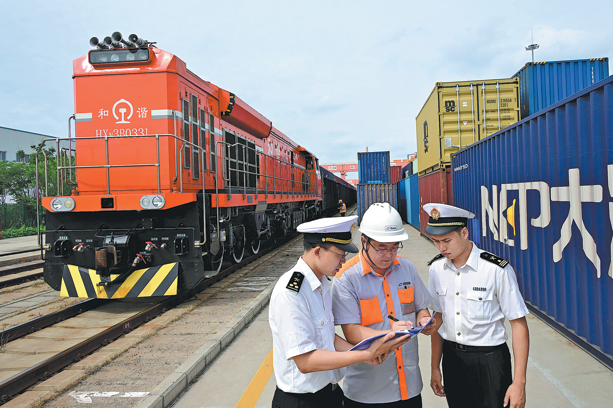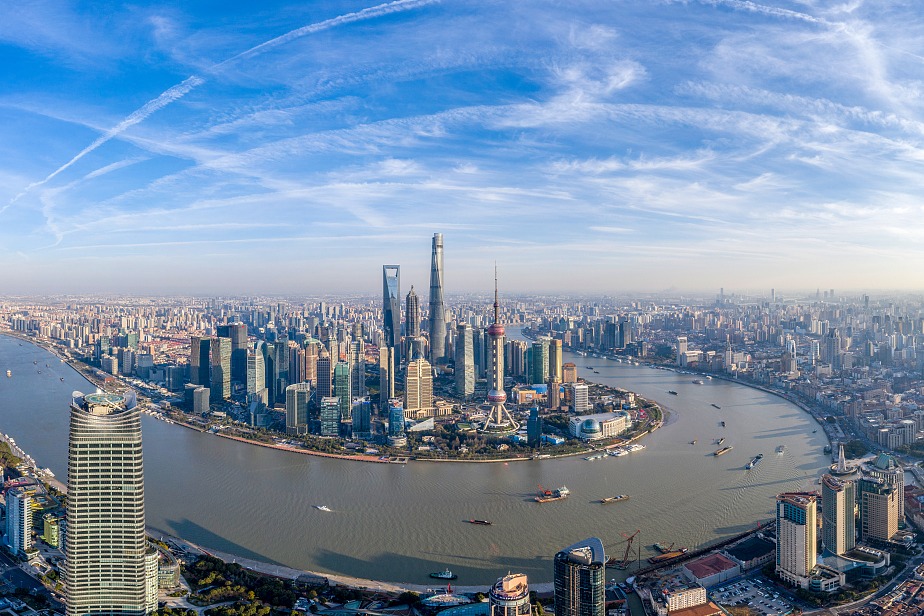Battling the crisis together

Reports that a slowdown in the Chinese economy is directly attributable to problems with the eurozone and the EU in January this year only show how intimately linked the two are. With the EU-China summit held in China on Feb 14, it offers a good chance to assess the relationship during the last few months.
There has been a radical transformation of the dynamics at the heart of the relationship over the last decade, and particularly since 2008. No one would have predicted, when China signed its bilateral deal with the EU as part of the entry requirements of the World Trade Organization (WTO) in 2001 that, in almost exactly a decade, as the world's second-largest economy, China would be playing host to delegations and visitors from the EU exploring the possibility of it bailing them out of a huge economic crisis.
Throughout the eurozone crisis, two things have been clear. The first is that all the official statements of the Chinese government have been that they believe the Europeans will be able to sort their internal issues out. The second is that they do not believe it is a good strategy for them to pour immense resources into euro bonds and European bailout funds. The reason for this is simple. The EU remains a rich economic bloc, still accounting for more than one-fifth of global GDP. It has per capita levels of wealth way above that of China, even in its poorest members.
The Chinese government would find it had to justify sustaining the generous social welfare and lifestyle levels of well-off Europeans when it is clear there is still poverty in China itself. The fundamental problem in Europe is levels of debt - government and personal - and the solution to that lies within the EU itself, in its governance, the ways member states run their budgets, and the readjustments to welfare programs, retirement ages, and other aspects of fiscal responsibility.
European leaders have had to think harder about what the meaning of the union is, and what a policy toward China might look like. On the whole, there has been a lack of unified thinking over EU wide policy toward China. Relations have often been driven bilaterally, with the French, British and Germans in the driving seat, simply because of the large size of their economies. Germany's huge economy, its strong exports, and the fact that it manufactures exactly the kind of goods that China buys - heavy machinery and automobiles - means the dynamics of the relationship between China and Germany are different to that between, for instance, China and Greece or China and Poland. This typifies the increasing role of Germany in the EU, politically and economically, and the ways in which this is reconfiguring the internal dynamics of the EU.
Now that the economic landscape has changed so dramatically, perhaps the EU member states will focus their thinking a bit more. What do they collectively really want from China, and how will they be best placed to achieve this? There are attempts now to create a unified inward investment policy, led by the directorate-general of the European Commission. The EU has specific policy challenges about opening markets in China, and getting what it feels is a level playing field there. Perhaps now is the time to accord China market economic status, put aside dogma, and once this is done be in a better political position to try to achieve gains for the EU.
The battle looming over the carbon charges levied on airlines looks set to take up much energy between both sides. The EU insists on a level playing field for international trade, and a rule-based system, and China and other emerging markets have supported and become stakeholders in that. Now there is the chance to focus on the essentials in the relationship, being pragmatic, rather than bogged down in debate that might run the danger of being cast as aspirational or value-laden. The two sides have never been in a better position to understand each other's needs.
The economic data this year in the EU has been, so far, less terrible than had been expected. France's downgrading by one of the ratings agencies from triple A has, so far, not led to a dramatic rise in its borrowing costs. But there are tough times ahead, with Greece's austerity measures still under debate, Italy facing major restructuring, and growth across most of the EU flat.
In these circumstances, the EU has to be fiercely pragmatic in its decision making. It has to view partnerships like that with China primarily in terms of how they might be able to work together to get out of the current problems. Neither Chinese nor EU leaders want any nasty surprises in the months ahead - and with a global environment still containing so much uncertainty, they will want their relationship to be as dependable and risk free as possible.
The author is head of the Asia Programme at Chatham House. The views do not necessarily reflect those of China Daily.
Today's Top News
- Economy seen on steady track
- Trade-in program likely to continue next year
- Li: SCO can play bigger role in governance
- Huangyan Island protection lifeline for coral ecosystem
- Latin America urgently needs green credit
- AI innovation powers China's lead in smart eyewear






























